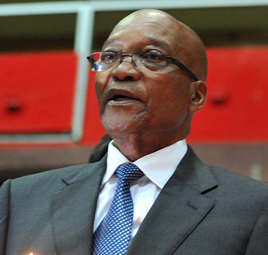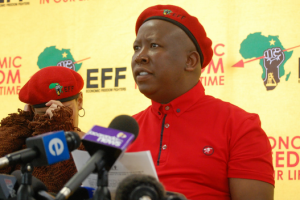
The Wrap Up: The ANC are Winners…but with some loss…
#Elections2014 is done and dusted. The hashtag is, of course, by now de rigeur – these were the social media elections and Facebook and Twitter, blogs, followers, likes and trends are now as important as traditional media in defining the conversation. With over 95% of the vote now counted, it is clear that the African […]

#Elections2014 is done and dusted. The hashtag is, of course, by now de rigeur – these were the social media elections and Facebook and Twitter, blogs, followers, likes and trends are now as important as traditional media in defining the conversation.

With over 95% of the vote now counted, it is clear that the African National Congress (ANC) has won comfortably, getting 62.43% of the 16.9 million votes counted so far. In most democracies this margin would be a source of wild celebrations, but the ANC will, I have no doubt, be huddling together to contemplate how many more elections they are guaranteed of winning.
There are several reasons for this.
The first are that the Democratic Alliance was able to win the Western Cape outright by a large majority, giving lie to claims that the party has no appeal to black and coloured voters. The fact that it won over 21% of the popular vote in South Africa when well under 10% of the population is white makes a mockery of accusations that the DA is merely the home of “disgruntled whiteys”, desperately hanging on to the remnants of their racial privilege.
The DA did well to win the Western Cape without the need for coalitions – they were lucky that the one they put together in 2009 held together as getting politicians to act in concert is notoriously difficult. They also grew in all the provinces, becoming official opposition for the first time in Kwa-Zulu Natal and increasing their hold in Gauteng from 21% in the last election to 30%.
Then there is the fact that the ANC was only able to scrape a win in the economic heartland of Gauteng, winning a mere 52% of the vote (at the time of writing) compared to 65% in 2009 and 68% in 2004. This does not bode well for the 2016 municipal elections.

Finally, and perhaps most worrying of all, not just for the ruling party but for all of us who value economic pragmatism and the notion that economic policy must be rational, is the rise of Julius Malema’s Economic Freedom Fighters. From nowhere, and despite the legal woes and appalling track record of if its founding commander in chief, the EFF was able to win over 6% of the vote, become the official opposition in Limpopo and likely to do very well in most of the northern provinces.
All this compounds the results of the 2009 general election where the ANC lost support in eight of the nine provinces, growing only in KwaZulu-Natal, party president Jacob Zuma’s home region.
So while the ANC will spend today and the weekend publicly crowing about how wonderfully popular it is, those in opposition who have worked so hard to render Zuma’s prediction that it will rule until the return of Jesus Christ false will be taking heart from the message the voters sent: the ANC may still be very popular but it is vulnerable and, as long as they don’t pull a Cope and completely implode, its days of untrammelled power are numbered.
The most important thing though, is that nearly two out of three South Africans still believe that the ANC is the best guardian of their futures, their hopes, dreams and aspirations. You may disagree with that majority but that is now irrelevant. The ANC was returned with an overwhelming majority (but not enough to play fast and loose with the constitution), This is the will of the people and will define us as a nation, for at least the next five years.
No matter who you voted for, Jacob Zuma will be your president as much as he will be that of the most die hard and ardent ANC cadre. Let’s hope he sees it that way too.